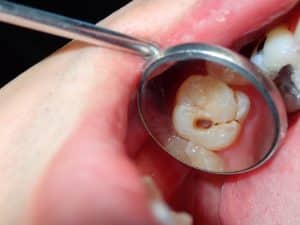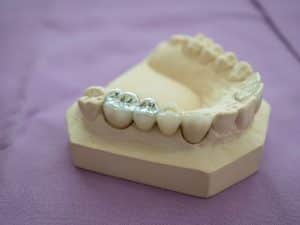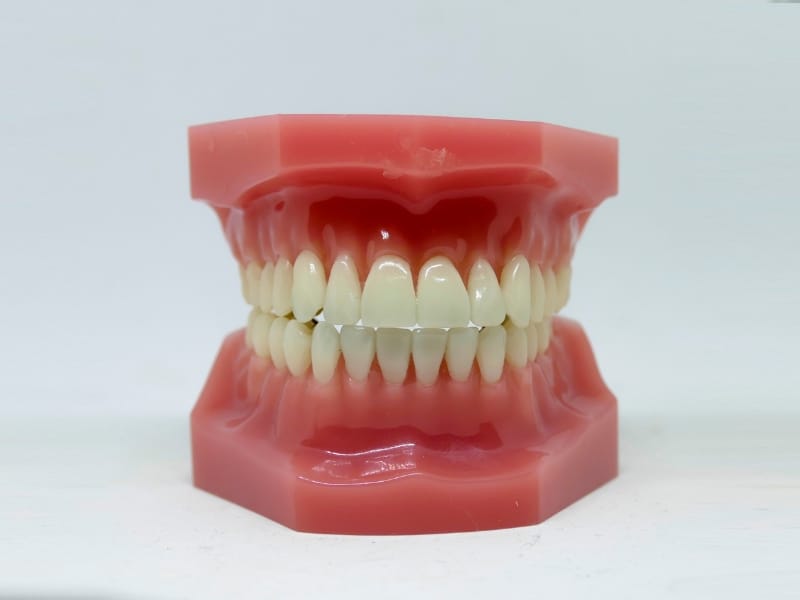Dental fillings are a common and necessary procedure for maintaining oral health. However, when it comes to dental filling front teeth, there are a few additional considerations that may cause concern. While these fillings are essential for restoring damaged or decayed teeth, certain risks are involved, especially given their location. This article explores the potential risks associated with dental fillings in front teeth and how they can be minimised to ensure lasting, natural-looking results.
What are dental fillings, and why are they necessary?
Dental fillings address tooth decay by removing the decayed area and replacing it with a filling material. This restores the tooth’s strength, prevents further decay, and improves its appearance. For dental filling of front teeth, the main objective is typically cosmetic—restoring the tooth’s shape, size, and colour. If a cavity occurs in a visible tooth, it’s crucial that the filling not only restores its function but also blends seamlessly with the natural look of the tooth.
What types of fillings are commonly used for front teeth?
Several types of fillings can be used for front teeth, each offering different benefits of dental fillings. Each has its advantages and disadvantages, and the right one for you will depend on your specific needs. Some common filling materials include:
- Amalgam fillings are durable and long-lasting, but due to their metallic appearance, they are not typically used for front teeth. They are better suited for back teeth.
- Composite fillings: These are popular for front teeth as they can be moulded to match the natural shape and colour of the tooth. They are made from a blend of resin and glass particles.
- Ceramic (Porcelain) fillings: These are highly durable and stain-resistant, making them an excellent choice for front teeth because they can match the tooth’s natural colour.
- Glass ionomer fillings are less durable but often used for smaller cavities or temporary solutions. They release fluoride to help prevent further decay.
- Gold fillings are very durable but noticeable in colour, so they are typically used for back teeth. Some choose them for front teeth if durability is a priority.
Are there risks involved in getting dental fillings for front teeth?
While dental fillings are generally safe, there are some risks to consider when having them placed in front teeth. These risks can include:
- Discolouration: Over time, fillings may become discoloured, especially if the material doesn’t match the natural tooth colour.
- Cracking: Front teeth experience more pressure from biting and chewing, which can cause the filling to crack.
- Visible outline: Some materials may not blend well, leaving a visible outline that can be noticeable when smiling or talking.
- Sensitivity: Temporary sensitivity to hot or cold is common after placing a filling.
- Decay underneath: If not properly sealed, further decay can develop beneath the filling.

Despite these risks, most of these concerns can be minimised with proper care and choosing the right material for the filling.
Can dental fillings in front teeth cause sensitivity or pain?
It’s common to experience sensitivity or discomfort after dental fillings in front teeth, mainly when eating hot or cold foods. This sensitivity typically fades within a few days or weeks and may be caused by:
- Nerve irritation: The dental procedure can sometimes irritate the nerves in the tooth, causing temporary pain or discomfort.
- Filling placement: If the filling is placed too deep, it may irritate the tooth’s pulp, leading to sensitivity.
- Inadequate bonding: If the filling is not sealed correctly, bacteria may enter the tooth, leading to sensitivity or pain.
Is there a risk of allergic reactions with fillings in front teeth?
Although allergic reactions to dental fillings are rare, they can occur, particularly with certain materials used in older fillings. Common reactions include:
- Metal fillings: Silver fillings, also known as amalgam fillings, contain metals like mercury, silver, and tin. Some individuals may develop allergic reactions to these metals.
- Composite fillings: While less likely, some people may have sensitivity or allergic reactions to the resins used in composite fillings.

Are there any risks of fillings falling out in front teeth?
While fillings are designed to be durable, there is always the risk that they may loosen or fall out. The risk of a filling falling out in front teeth can be higher if the tooth has extensive damage or decay. Common reasons for fillings falling out include:
- Chewing hard foods: Biting down on hard foods like ice or sticky candies can put excessive pressure on the filling and cause it to dislodge.
- Poor oral hygiene: Failing to care for the filling and surrounding area properly can lead to bacteria and plaque buildup, which may cause the filling to loosen over time.
- Old fillings: Fillings can wear down over time, and older fillings may be more prone to breaking or falling out. Regular check-ups will help spot any issues before they become significant.
To minimise the risk of a filling falling out, avoid chewing hard foods directly on the filling and maintain excellent oral hygiene.
What can you do to minimise risks with dental fillings in front teeth?
To reduce the potential risks associated with dental fillings in front teeth, consider these tips:
- Choose the right material: Ensure that your dentist selects a filling material that suits both your dental needs and aesthetic preferences.
- Maintain Proper oral hygiene: Brush and floss regularly to prevent bacteria from getting trapped around the filling and causing further issues.
- Avoid hard foods: Avoid biting down on hard or sticky foods, which may damage your filling or cause it to loosen.
Ensure healthy, functional front teeth with the right fillings
Dental fillings in front teeth are an effective solution for restoring damaged teeth. While there are some risks involved, such as discolouration, sensitivity, and wear, they are generally safe when properly cared for. By partnering with a professional dental care service, you can choose the best filling material and take steps to minimise risks, ensuring your front teeth remain healthy and functional.
If you’re looking for a trusted dental clinic in Sydney that offers comprehensive dental care, Marsfield Dental Care is here to help. With a family-friendly focus and a multilingual staff, we ensure clear communication and comfort throughout your treatment and provide a range of cosmetic and restorative dental services. We are dedicated to providing personalised care to patients of all ages. Visit Marsfield Dental Care today to learn more about your dental options and receive the best treatment for your needs.

